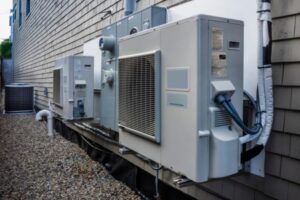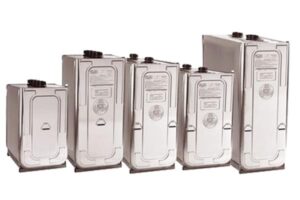Understanding your heat pump’s efficiency is key to maximizing comfort and minimizing costs. One critical metric, the Heating Seasonal Performance Factor (HSPF), sheds light on how well your system converts electricity into heat during winter. Learn what this means, how it differs from other measures, and why it matters for your home and wallet.
A heating oil tank is a critical component of your home’s heating system, but its longevity depends on various factors. In this article, we’ll explore what impacts the lifespan of a heating oil tank, how proper care can extend its usefulness, and the signs that indicate it may need replacement.
A faint heating oil smell when starting up your furnace might be normal, but lingering or strong odors can signal something serious. Recognizing what these scents mean can help ensure the efficiency and safety of your heating system. Discover what causes these smells and why they’re worth paying attention to for a worry-free winter.
Winter’s chill can challenge your heat pump, leaving you wondering why it’s not reaching the desired temperature. This article explores common reasons why your system might struggle during cold snaps and how to manage expectations. From outdoor unit issues to insufficient insulation, find out what factors could be affecting your heat pump’s performance.
A double-wall heating oil tank features two layers of protection, with a sealed space between them designed to contain potential leaks. This setup offers enhanced safety and durability compared to traditional single-wall tanks. Find out how these tanks work, their benefits, and why some homeowners prefer them for better environmental protection and long-term reliability.
Discover the hidden expenses of boiler operation and learn how to keep your heating bills low. This article explores overlooked costs and offers practical tips to maintain boiler efficiency, ensuring a balance of comfort, economy, and environmental responsibility. Find out how regular maintenance, smart upgrades, and energy-saving measures can significantly improve your boiler’s performance.
In today’s sustainability-focused world, improving your air conditioner’s efficiency is crucial. Discover strategies to enhance performance and lower energy costs. From adjusting your thermostat to regular HVAC maintenance, learn how to optimize cooling while minimizing environmental impact. Boost indoor comfort and support sustainability with these proven tips for a more efficient air conditioning system.
Oil tank condensation can happen when moist air enters the oil tank and the temperature drops. This can cause water droplets to form inside, leading to rust, bacterial growth, and system inefficiencies. Preventive measures like regular inspections, maintaining a full tank, and using water-detection paste are crucial for minimizing these issues.
Discover the key factors to consider when selecting an air conditioner replacement company. From professional licensing to industry certifications, this article outlines essential strategies for ensuring optimal installation and performance. Learn how to evaluate HVAC contractors, compare estimates, and prioritize post-installation maintenance to protect your investment and maintain comfort in your home.
Regular air conditioner tune-ups offer numerous benefits for homeowners gearing up for summer. Lower cooling costs, increased comfort, and fewer breakdowns are just some advantages. These maintenance checks can extend your AC’s lifespan, minimize repair expenses, reduce energy consumption, and improve indoor air quality, ensuring a healthier and more comfortable home environment.










